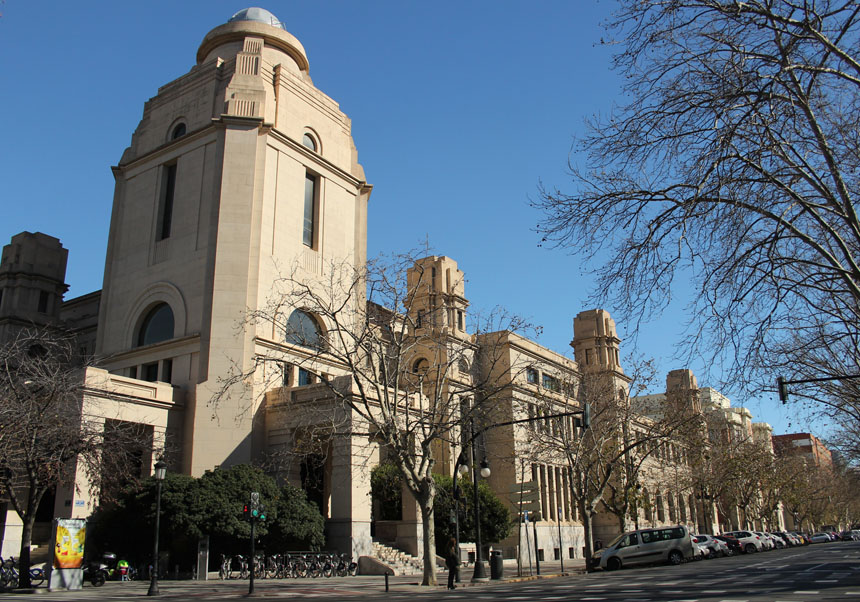
The Universitat de València has now been officially registered as a Knowledge Transfer Office (KTO) by the Ministry of Science, Innovation and Universities. Thanks to the registration acceptance and the official recognition of its transfer trajectory, the UV will have access to new national and European funds, more internationalisation resources, improved technical support and advice, and new infrastructures and equipment.
KTOs are the result of the Transfer and Collaboration Plan of the Ministry of Science, Innovation and Universities within the framework of the promotion of innovation stimulation, knowledge transfer, dissemination, and scientific, technological and innovative culture. They are defined as combined organisational structures with permanent staff designed to carry out transfer functions. A new concept of KTOs has been established, in which they are not linked to a physical office, such as the Office for the Transfer of Research Results (OTRR), but rather related to the performance of transfer functions.
The UV was recognised and registered as a KTO following the accreditation of the university as a transfer ecosystem, formed by the various structures that adopt the knowledge transfer functions defined by the Ministry.
The transfer functions performed by the departments, research institutions, interdisciplinary research structures, and Doctoral School, which could be considered as the ‘basic transfer structures’, have been included under the umbrella of the Office of the Vice-Principal for Innovation and Transfer, Research and Studies. The work conducted by the AgrotecUV High Technology Incubator, the Science Culture and Innovation Unit (SCIU), UVEmpren, UVChairs, the Science Park UV, and the Scientific Units for Business Innovation (UCIE) has also been highlighted, as well as the functions of the central services, such as the Transfer and Innovation Service and the Research Management Service.
The transfer functions of the UV recognised with this registration include the protection of Research, Development and Innovation (R+D+I) results, the exploitation of research results, inventions and new technologies through contracts involving the transfer of their use or ownership by third parties, collaborative research between public and private entities, the contracting of R+D+I and technological services, the promotion of the creation of knowledge-based entities (previously spin-off) and the social dissemination of knowledge.
Among the new funds that the UV will be able to access are those of the Spanish Government, which are specifically aimed at supporting knowledge transfer and innovation, applied research, technology development, staff training or the protection of industrial property.
The UV will also be able to increase the number and quality of EU funding plans that support research, innovation and technology transfer. For example, Horizon Europe, the EU’s framework programme for research and innovation.
The registration as a KTO office will also allow the Universitat de València to gain more resources for its internationalisation, through the assistance in establishing international collaborations, participation in fairs and events and access to exchange and mobility programmes for entrepreneurs and researchers.
The Spanish government, through the Ministry of Science, Innovation and Universities and other entities, will provide improved technical support and advice for R+D+I projects and their transfer, in matters such as intellectual property management or the development of new strategies.
Registration as a KTO will also benefit the UV in funding programmes for access to infrastructure and highly specialised research and technological development equipment in technological transfer projects that require academic or industrial partners.








